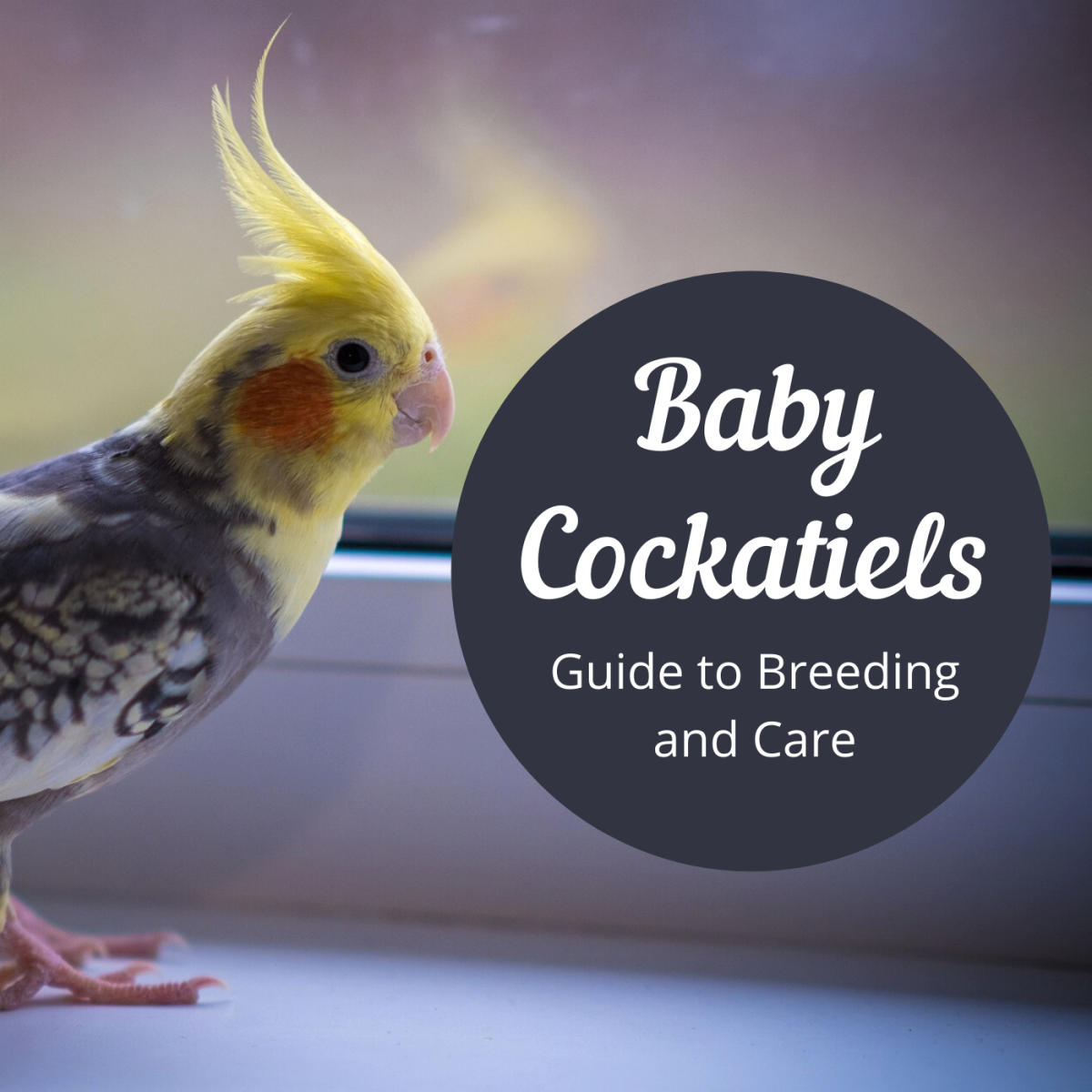Cockatiel Egg Basics
Grasping the ABCs of cockatiel eggs is a must for anyone dabbling in the world of breeding or taking care of these lively birds. Here, we break down the typical egg-laying antics and what to expect when a cockatiel lays eggs.
Egg Laying Behavior
Did you know your gal cockatiel can lay eggs without even a fella in sight? Yep, those eggs won’t hatch, though. Generally, the lady lays between 2 to 7 eggs a go, partner or not. She’ll pop out one egg every other day till she calls it a wrap. Once she’s got a couple or three eggs under her, that’s her cue to start incubating, which means hatchlings will make an entrance at different times—they’re fashionably late, you might say.
| Behavior | Details |
|---|---|
| Egg Laying Frequency | Every other day |
| Clutch Size | 2 to 7 eggs |
| Incubation Start | After 2nd or 3rd egg |
Physical Characteristics of Cockatiel Eggs
Cockatiel eggs aren’t all cookie-cutter. They do have a few things in common, though. These eggs are pretty much oval and sport a nice clean white look. Their size can change depending on how old or healthy the mama bird is feeling at the time.
- Shape: Oval
- Color: White
- Size: It varies
Getting the lowdown on the egg-laying behavior and what the eggs look like gives you a leg up in taking care of your feathered friend. For more tips on dealing with these eggs and the general nitty-gritty of cockatiel maintenance, check out our articles on cockatiel egg laying, cockatiel nests, and cockatiel care.
Incubation Process
Grasping how incubation works is key to seeing those little cockatiel eggs hatch. You can’t just wing it; it needs attention and regular check-ins with Mother Nature’s temperature controller.
Incubation Period of Cockatiel Eggs
Cockatiel eggs usually hatch after a marathon of about 18 to 22 days. Sometimes these little guys test your patience, taking up to 25 days for a debut post-lockdown.
| Cockatiel Egg Incubation Period |
|---|
| Average Incubation Period: 18 – 22 days |
| Possible Variation: 21 – 25 days |
Timing’s everything if you want nests full of chirpy little beaks. Keep a close watch on temperature and humidity-they’re your best friends in this egg-spectacular journey.
Factors Influencing Hatching Success
Quite a few things can nudge your hatching saga in one way or another. Let’s talk about what can crank up those odds:
-
Temperature and Humidity: Keeping these steady is crucial. Too much fluctuation and your hatchlings might just ghost on you.
-
Turning the Eggs: Don’t leave them lying around. Flipping them over now and then stops baby birds from sticking to the shell, which is a no-go for healthy chicks.
-
Calcium Supply: This is especially for the mama birds. Make sure they snack on calcium-packed goodies, like cuttlebones. Without enough, they could struggle to lay eggs.
-
Egg Infertility: Sometimes it’s just not meant to be. If the eggs don’t hatch, it might be because of some fertility roadblocks (JustAnswer).
-
Parenting Experience: Greenhorn parents might bumble things up. With little to no prior nesting knowledge, they could unintentionally coddle their eggs too hard.
Tweaking these factors could bump up your hatching wins to all-star level. Want to be a pro in parrot parenting? Check out our cockatiel care guide and get the lowdown.
Keeping tabs on these and offering top-tier birdie TLC will help your lil’ eggs become the toast of the nest. Want more intel on egg care? Peek at our article on cockatiel laying eggs.
Care and Management
Incubation Conditions
When it comes to hatching cockatiel eggs, you’ve gotta be on point with the temperature and humidity. Nobody wants scrambled eggs, after all! Typically, these little guys take about 18 to 21 days to make their grand entrance into the world, depending on how you roll with the incubation process. Cockatiel eggs thrive at around 99.5°F (37.5°C), and you’ll wanna keep the humidity in check too – 50% to 55% for the first 18 days, dialing it up to 65% to 75% towards the end.
| Incubation Detail | Suggested Range |
|---|---|
| Temperature | 99.5°F (37.5°C) |
| Humidity (Days 1-18) | 50%-55% |
| Humidity (Days 18-21) | 65%-75% |
Turning the eggs like a rotisserie chicken (just maybe not as often) is also important – a few times a day is the norm. This keeps the tiny chick from sticking to its shell and ensures it gets heat evenly. Usually, the incubator handles this, but you might have to step in if you’re not using an automatic one.
For more on keeping these future chirpers cozy, check out our guide on cockatiel laying eggs.
Human Intervention and Care
Sometimes the cockatiels might not be the best babysitters, so you might have to jump in. If the parents are goofing off, an incubator can be your hero, providing the perfect setting for the eggs to hatch.
Handle those delicate eggs like they’re made of glass. You can place them in a cup lined with soft paper towels, arranged just right for hatching. Keep a close eye on the incubator settings and make sure everything’s running smoothly.
Should you find yourself needing to meddle during hatching, gentle touch is key. Clean hands are a must to keep the little ones safe from any unwanted germs!
For more on this eggcellent adventure, our resources on cockatiel nest and cockatiel care have got you covered.
By sticking with these strategies, you’ll give your future feathery friends the best start in life, ensuring both the eggs and the hatchlings thrive.
Health and Wellness
Risks and Challenges
Breeding cockatiel eggs ain’t a walk in the park. It’s got its fair share of hurdles that can trip you up if you’re not careful. Keeping these little critters safe and sound is a priority.
Too Many Eggs:
Cockatiels have a tendency to go overboard with their egg-laying, which can drain their bodies dry of nutrients and lead to serious health issues. If your bird’s laying like it’s going out of fashion, you might want to make some changes around the place to tap the brakes a bit.
Eggs Not Hatching:
Sometimes, those eggs don’t hatch, and that’s a bummer. Could be because Daddy Bird’s not pulling his weight, or maybe it’s just bad luck with the nest or the conditions the birds have got.
Struggling to Lay Eggs:
Egg binding can really mess up a cockatiel. It’s when the bird can’t pass an egg, and it can be serious. Other birds like finches and parakeets have a similar struggle.
Incubation Issues:
Keeping those eggs warm and cozy is a must for them to hatch properly. Mess up the temperature or humidity, and bam, you’ve got hungry chicks that never were.
Preventive Measures
Avoiding or kicking these problems to the curb takes some know-how and a few smart moves:
Dial Down the Egg-making Mood:
- Keep daylight short, less than 12 hours a day.
- Avoid giving them a peek at the wild birds outside.
- Move their cage now and then to give ’em a change of scenery (JustAnswer).
Fuel ’em Right:
- Load up on calcium-rich snacks, like offering cuttlebone, to dodge egg binding.
- Make sure they’re getting a well-rounded diet as part of their overall cockatiel care.
Incubate Like a Pro:
- Keep things steady with temperature and humidity to give those eggs the best chance.
Check-Ups are Key:
- Get regular check-ups with a bird doc to nip any issues in the bud.
Step in When Needed:
- If things go south, like signs of egg binding or an egg that doesn’t hatch, jump in and help out. For extra tips, check out our cockatiel care guide.
Knowin’ what can go wrong and how to steer clear of it helps bring your feathered friends safely through the whole hatchin’ process.

